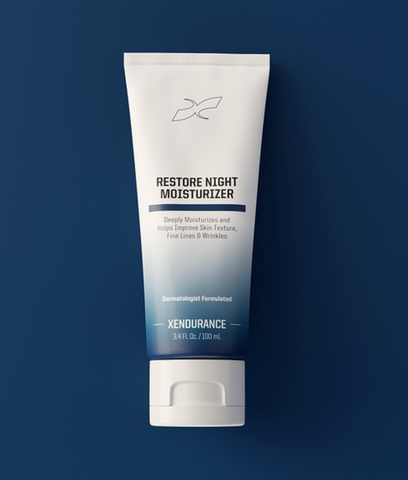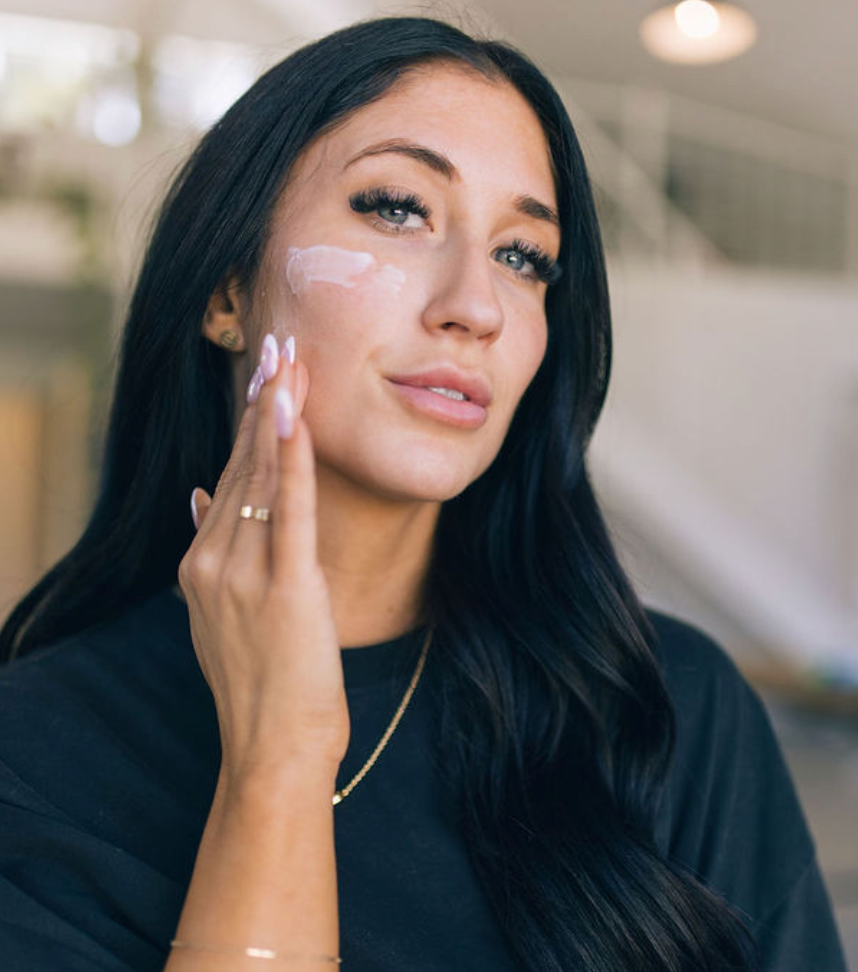In the world of skincare, few products are as essential and universally relied upon as moisturizers. Whether you're battling dryness, seeking hydration, or simply aiming to maintain a healthy complexion, a good moisturizer can be your best ally. But what exactly makes a moisturizer great? Let's delve into the intricacies of moisturizers, exploring their key components, functions, and how to choose the perfect one for your skin.
Understanding the Basics:
At its core, a moisturizer serves to hydrate and nourish the skin, restoring moisture lost due to environmental factors, aging, or other skincare products. While this might seem straightforward, the effectiveness of a moisturizer depends on several factors, including its formulation, ingredients, and compatibility with your skin type.
Types of Ingredients:
- Humectants: Humectants like glycerin, hyaluronic acid, and urea attract water molecules, helping to hydrate the skin by drawing moisture from the environment and deeper layers of the skin.
- Emollients: Emollients such as oils, butters, and fatty acids work by filling in the gaps between skin cells, creating a smooth and soft texture while sealing in moisture.
- Occlusives: Occlusive agents like petrolatum, lanolin, and silicones form a protective barrier on the skin's surface, preventing water loss and locking in moisture. Each of these has its own benefits and drawbacks so research carefully.
- Antioxidants: Antioxidants such as vitamins C and E, green tea extract, and niacinamide help combat free radicals, reducing oxidative stress and inflammation while promoting skin repair and rejuvenation.
Premium Moisturizers: Top Ingredients:
Premium moisturizers often boast formulations that prioritize high-quality, effective, and skin-loving ingredients suitable for all skin types. Here are some key ingredients commonly found in premium moisturizers that benefit and promote healthy skin across different skin types:
- Hyaluronic Acid: This powerhouse ingredient is a humectant that attracts and retains moisture, making it ideal for hydrating all skin types without clogging pores or feeling heavy on the skin.
- Glycerin: Another humectant, glycerin helps to draw moisture into the skin, leaving it feeling soft, smooth, and supple. It's gentle and suitable for all skin types, including sensitive skin.
- Niacinamide (Vitamin B3): Niacinamide offers a myriad of benefits, including improving the skin's barrier function, reducing inflammation, minimizing pore appearance, and regulating oil production. It's well-tolerated by most skin types, making it a versatile ingredient in premium moisturizers.
- Ceramides: These lipid molecules are essential for maintaining the skin's barrier function, preventing moisture loss, and protecting against environmental stressors. Ceramides help to strengthen and fortify the skin's natural protective barrier, making them beneficial for all skin types, especially dry or sensitive skin.
- Vitamin E: A potent antioxidant, vitamin E helps to neutralize free radicals, protect against UV damage, and promote skin repair and regeneration. It's particularly beneficial for mature or sun-damaged skin but can be used by all skin types to maintain overall skin health.
- Squalane: Derived from olives or sugarcane, squalane is a lightweight emollient that mimics the skin's natural sebum, making it suitable for all skin types, including oily and acne-prone skin. It helps to moisturize, soften, and smooth the skin without clogging pores.
- Aloe Vera: Known for its soothing and hydrating properties, aloe vera is a natural moisturizer that calms inflammation, relieves irritation, and replenishes moisture levels. It's gentle and well-tolerated by all skin types, making it an excellent ingredient for sensitive or reactive skin.
- Peptides: These amino acid chains support collagen production, improve skin elasticity, and promote a firmer, more youthful complexion. Peptides are suitable for all skin types and can address various concerns, including fine lines, wrinkles, and loss of firmness.
- Antioxidants (e.g., Vitamin C, Green Tea Extract): Antioxidants help to neutralize free radicals, protect against environmental damage, and brighten the skin tone. Vitamin C, in particular, promotes collagen synthesis and enhances skin radiance, while green tea extract has anti-inflammatory and soothing properties. These ingredients benefit all skin types, providing protection and rejuvenation.
- Probiotics: Probiotics support the skin's microbiome, promoting a healthy balance of beneficial bacteria and enhancing skin barrier function. They help to soothe inflammation, reduce redness, and improve overall skin health, making them suitable for all skin types, including sensitive and acne-prone skin.
These key ingredients found in premium moisturizers work synergistically to hydrate, nourish, protect, and rejuvenate the skin, regardless of skin type. When choosing a moisturizer, look for formulations that contain a combination of these ingredients to ensure comprehensive skincare benefits and optimal results.

Functionality:
A great moisturizer should effectively hydrate the skin without leaving a greasy residue or clogging pores. It should feel lightweight and absorb quickly, providing immediate relief to dryness and tightness. Additionally, a good moisturizer should offer long-lasting hydration, keeping the skin moisturized throughout the day or night.
Choosing the Right Moisturizer:
- Know Your Skin Type: Understanding your skin type—whether it's dry, oily, combination, or sensitive—is crucial for selecting the right moisturizer. Different formulations cater to specific skin needs, so choose one that addresses your concerns without exacerbating existing issues. Some moisturizers are formulated for all skin types.
- Read the Labels: Pay attention to the ingredients list, avoiding products containing potentially irritating or comedogenic substances like fragrances, alcohol, and mineral oil. Look for moisturizers with simple formulations and beneficial ingredients suited to your skin type.
- Consider Additional Benefits: Depending on your skincare goals, you may opt for moisturizers with additional benefits such as sun protection, anti-aging properties, or targeted treatments for specific concerns like acne or hyperpigmentation.
- Patch Test: Before incorporating a new moisturizer into your skincare routine, perform a patch test on a small area of your skin to check for any adverse reactions or allergies.
The Role of Texture and Consistency:
The texture and consistency of a moisturizer play a significant role in its application and absorption. While thicker creams and ointments are ideal for dry and mature skin, lighter lotions and gels are better suited for oily and acne-prone skin types. Finding the right balance between richness and lightweight feel ensures optimal hydration without feeling heavy or suffocating on the skin.
Customization and Personalization:
In recent years, the skincare industry has witnessed a surge in personalized skincare solutions, allowing consumers to tailor their products to individual needs and preferences. From custom-blended formulations to advanced technology-driven analyses, personalized moisturizers offer a bespoke approach to skincare, catering to unique skin concerns, sensitivities, and lifestyle factors.
Environmental Considerations:
Beyond personal skincare needs, environmental factors also influence the efficacy of moisturizers. In regions with dry climates, lightweight yet intensely hydrating moisturizers are essential for combating moisture loss and maintaining skin barrier function. Conversely, in humid environments, non-comedogenic and oil-free formulations help prevent excess oil production and breakouts.
The Importance of Consistent Application:
Achieving optimal results with a moisturizer requires consistent and diligent application. Incorporating moisturizer into your daily skincare routine—morning and night—helps replenish moisture levels, protect against external aggressors, and promote overall skin health. Remember to apply moisturizer to damp skin, immediately after cleansing or toning, to lock in moisture and enhance absorption.
Myths and Misconceptions:
Despite being a staple in skincare, moisturizers are often subject to myths and misconceptions. One common myth is that oily skin doesn't need moisturizer—a fallacy that can exacerbate dehydration and oiliness. In reality, choosing a lightweight, oil-free moisturizer can help balance oil production and maintain skin hydration without clogging pores.
Choosing the Perfect Moisturizer:
In the realm of skincare, a great moisturizer is more than just a hydrating product—it's a cornerstone of healthy, radiant skin. By understanding the key components, functions, and considerations involved in choosing the right moisturizer, you can unlock the secrets to a nourished, balanced complexion. Whether your skin is dry, oily, sensitive, or somewhere in between, finding the perfect moisturizer tailored to your needs is a transformative step toward skincare success. And remember, a moisturizer is only as good as its ingredients!









Leave a comment
This site is protected by hCaptcha and the hCaptcha Privacy Policy and Terms of Service apply.